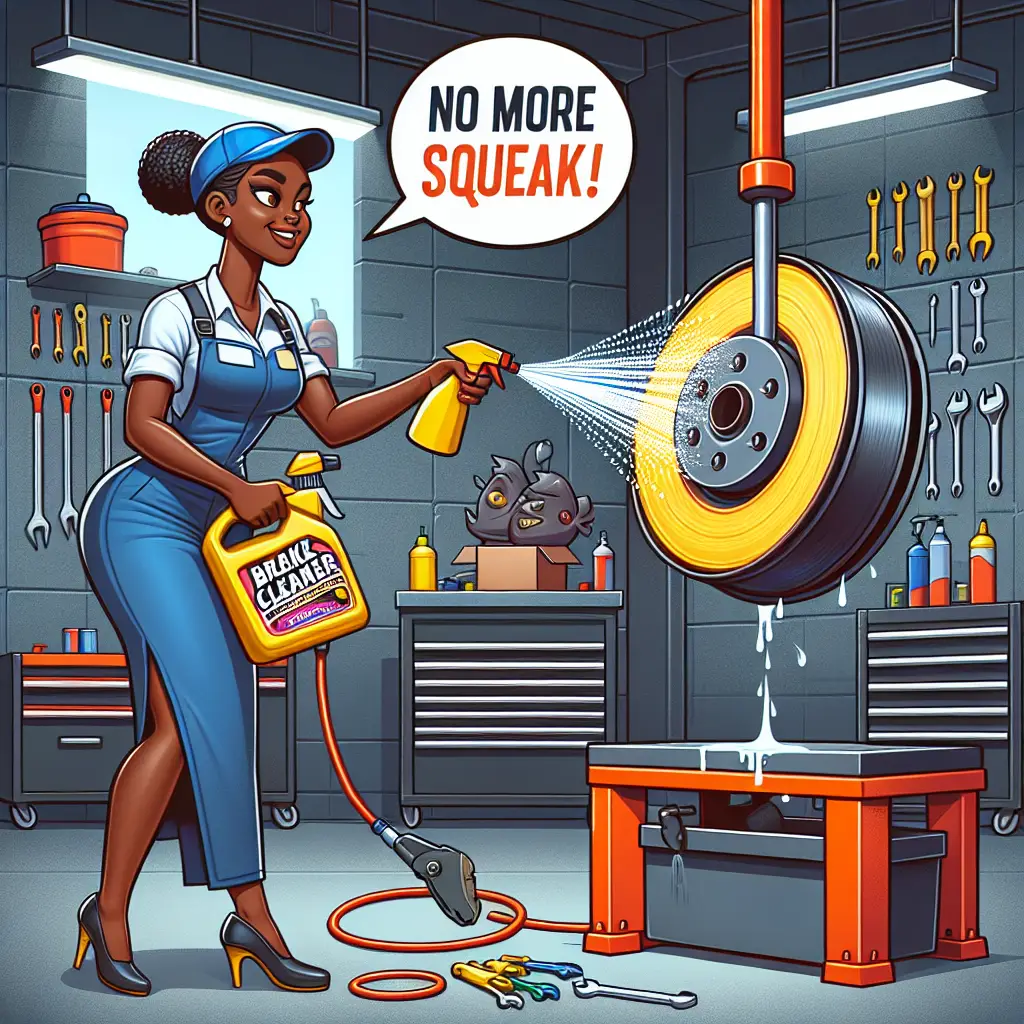Will Brake Cleaner Stop Squeaky Brakes? A Comprehensive Guide
When you’re cruising down the highway or navigating through city traffic, the last thing you want to hear is a high-pitched squeal every time you tap the brakes. It’s not just annoying – it’s worrisome. If you’re grappling with squeaky brakes, you might be considering brake cleaner as a quick fix. But is it the miracle cure you’re hoping for? Let’s dive into the details and uncover whether brake cleaner can silence those pesky squeaks.
What Causes Squeaky Brakes?
Before we address the solution, we must understand the problem. Squeaky brakes are typically caused by one of the following issues:
- Vibration: When your brake pads vibrate against the calipers or rotors, it can create that telltale squeal.
- Worn Pads: Brake pads with worn down friction material will cause metal to metal contact, emitting a squeaking or grinding noise.
- Dust and Debris: Accumulation of dirt, dust, and other debris can lead to noise as well as decreased brake performance.
- Rust: Even overnight rust can cause a squeaking sound, which might disappear after a few brake applications.
The Role of Brake Cleaners
Brake cleaners are designed to clean the brake parts and components. They’re excellent at dissolving and removing grease, oil, dirt, and brake fluid, all of which might compromise braking performance. But the question stands – will spraying brake cleaner on your noisy brakes actually stop the squeaking?
Here are a few points to consider:
- Cleaning Effect: A brake cleaner will remove debris from the brake system, which might reduce noise if grime buildup is the culprit.
- Temporary Solution: If the squeak is due to surface rust or a slight residue of dirt, brake cleaner might help momentarily. But remember, it’s not a fix-all solution.
- Non-Lubricating: Brake cleaner is a solvent, not a lubricant. Brakes require appropriate grease at specific points for optimal operation, so a cleaner alone won’t solve all noise issues.
Proper Use of Brake Cleaner
If you’re going to give brake cleaner a try, it’s crucial to do it correctly. Here’s how to use brake cleaner effectively:
- Safety First: Wear gloves and eye protection, and work in a well-ventilated area. Remember, brake cleaner can be toxic and flammable.
- Remove the Wheel: Jack up your vehicle and take off the wheel for better access to the brake components.
- Application: Spray the cleaner onto the brake discs, pads, and calipers, following the product’s instructions. Avoid spraying plastic and rubber parts to prevent damage.
- Drying: Allow the cleaner to evaporate completely. Some products may require wiping away residue with a clean cloth.
When Brake Cleaner Isn’t Enough
There are situations where cleaning alone won’t remedy brake squeaking:
- Pad Wear: If your pads are worn out, no amount of cleaning will fix them. It’s time for a pad replacement.
- Component Damage: In cases of damage to the rotors, calipers, or other brake system components, a mechanic should assess and repair your vehicle.
- Lubrication Issues: Specific points require brake grease for smooth operation; if these are dry or incorrectly lubricated, brake cleaner won’t help.
Alternatives and Additional Solutions
If brake cleaner doesn’t solve your squeaking issues, consider the following steps:
- Inspection: An inspection by a professional can pinpoint the exact cause of the noise.
- Anti-Squeal Products: There are various shim inserts and sprays designed to prevent vibration and noise between the pad and caliper.
- High-Quality Brake Parts: Investing in better quality brake pads and rotors can prevent future squeaks and improve braking performance.
Maintenance Tips to Prevent Squeaky Brakes
Prevention is always better than cure. Here are some maintenance practices to keep your brakes in top shape:
- Regular Cleaning: Use brake cleaner during regular brake maintenance to prevent dust and debris from accumulating.
- Check for Wear: Monitor your brake pads for signs of wear and replace them proactively.
- Proper Installation: Ensure your brake components are correctly installed and that any required lubrication is applied during brake services.
Conclusion
In summary, brake cleaner can assist in reducing squeaky noises if the cause is minor, such as light rust or dirt. However, it isn’t a silver bullet for all brake noise problems. Frequently, brake squeaks signal the need for a deeper inspection or service. Remember, brakes are one of the most critical safety systems on your vehicle. If in doubt, consult a professional to examine your braking system.
Understanding the ins and outs of brake maintenance will help ensure you’re never ignored when it’s time to stop. And while brake cleaner might offer a quick fix, it’s the care and attention you give to your vehicle over time that will ultimately keep it, and you, on the road safely.
Maintaining your brakes isn’t just about avoiding the embarrassment of a noisy stop at a traffic light—it’s about ensuring your vehicle’s safety mechanisms are functioning correctly. So next time you hear a squeak, remember to consider the bigger picture and address the issue head-on. Happy (and quiet) braking!
Note: The content provided in this article is for informational purposes only and should not be considered professional mechanical advice. Always consult with a qualified technician for diagnosis and repair of automotive problems.

